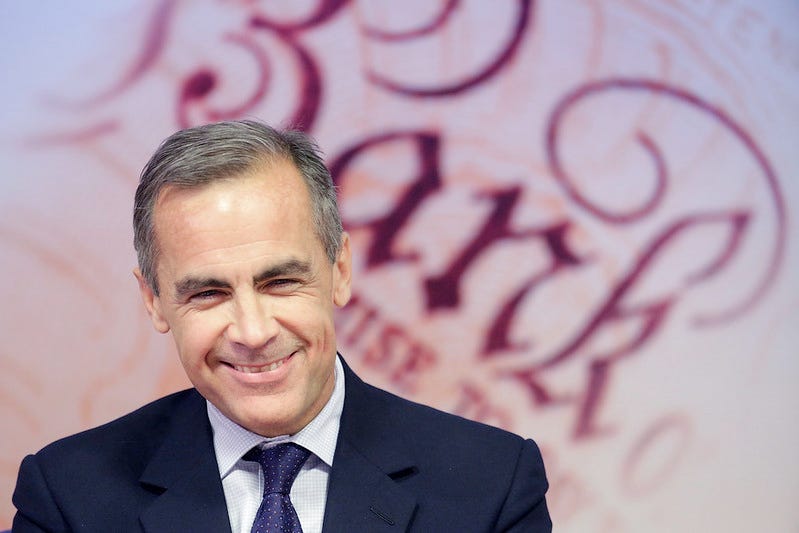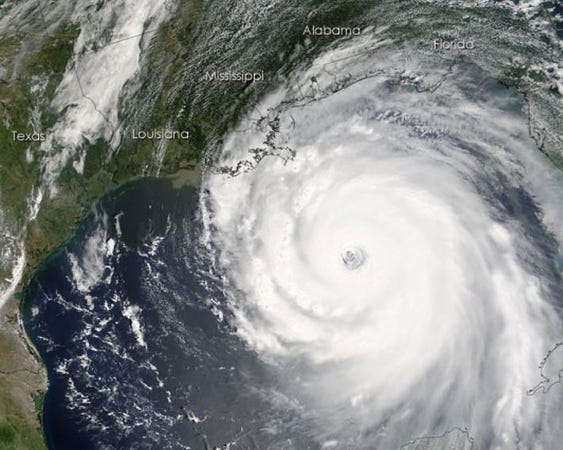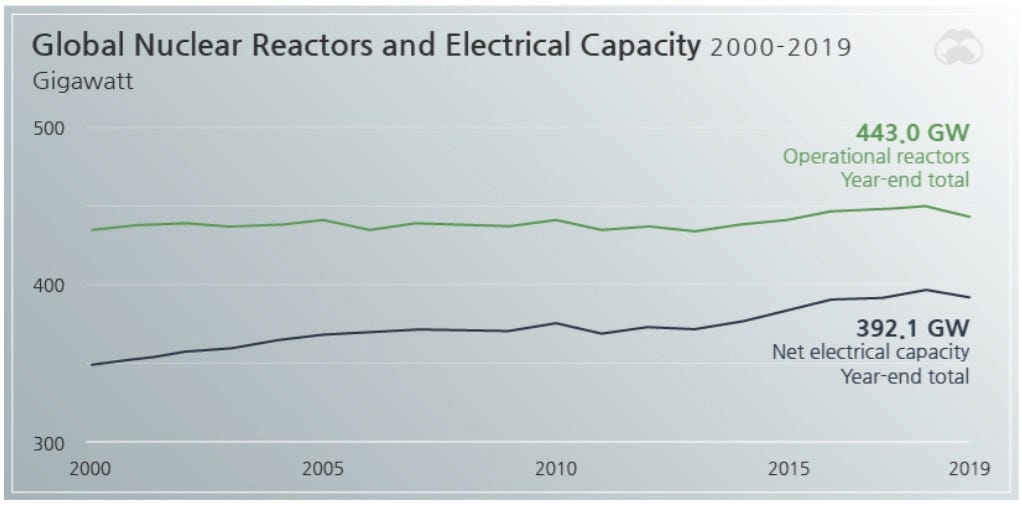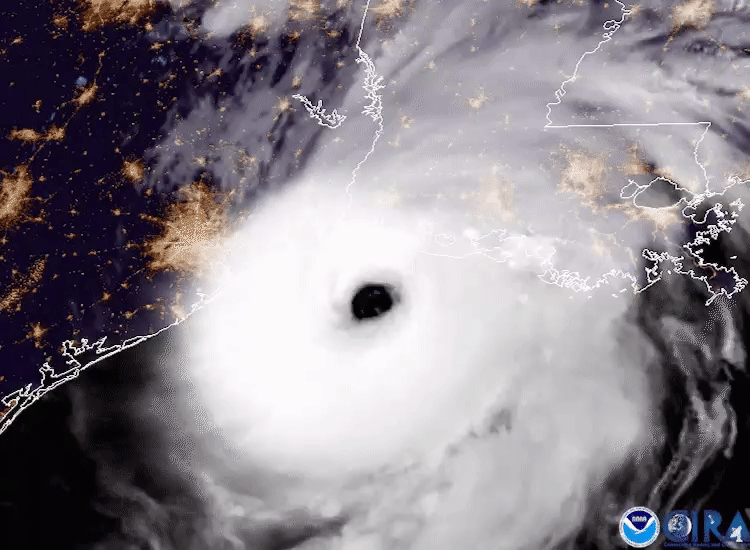Ill winds blow for ESG as wild summer gives way to election season, Covid recovery battles
Welcome to Callaway Climate Insights, and especially to our new subscribers. It's been a wild month. Please share and if you're new, please subscribe.
. . . . Remember Covid? It seems like only yesterday we were hoarding toilet paper and beer and peering out windows at long-haired, masked zombies in the streets below. August put an end to that, thrusting climate change into the headlines with wildfires, heatwaves, flooding, and hurricanes.
But as summer gives way to election season, political battling over Covid-19 recovery plans — and general economic reckoning — the ESG momentum play faces an ill wind worldwide. In the U.S., the Trump/Biden election hinges on the economy, and a fight over inequality and law enforcement the likes of which we haven’t seen since the Civil Rights Movement. My ZEUS column this week looks at the prospects for climate change as a major issue on such an incendiary calendar.
In Europe, scandal and squabbling over cost is dousing early enthusiasm for green rebuilding, as Stephen Rae points out in his European notebook from Dublin. In Canada, fights over a carbon tax are part of a political stalemate that could lead to a snap election later this year. In Latin America, the push to carve up the Amazon moves on despite the ravages of the pandemic.
In the record-running stock market, Covid-19 rebound stocks like banks, consumer finance and even airlines are moving, as investors look beyond tech. Against this backdrop, ESG investing and corporate pushes toward net zero emissions, renewable energy, and cleaner supply lines will continue, with this week’s highlights and notables below. But they will fight for profile as autumn 2020 shapes up to be a doozy.
More insights below … and yes, we have the most powerful hurricanes ranked.
And don’t forget to contact me directly if you have suggestions or ideas at dcallaway@callawayclimateinsights.com.
ZEUS: Election stretch will leave climate change in the dust

. . . . If ever there was a presidential election year that demanded a priority debate about combating climate change, 2020 is it, writes David Callaway. Fueled by a run of hurricanes, wildfires, flooding, and protests for environmental justice, the changes shaping the nation are right in front of our eyes.
In electoral politics, though, the climate emergency will have to take its place in line. And it won’t be up front. . . .
As we’ve seen in the past few weeks, climate change is life and death for many. It’s just not yet political life and death. A study earlier this month by the Pew Research Center doesn’t even have climate change in the top 10 of important issues for voters. It trails economic inequality, violent crime, even foreign policy. Still, it is making inroads by attaching itself to other issues.
The social unrest that has scarred the country this summer after shootings in Minneapolis and now Wisconsin have tied climate change to the plight of minorities such as Blacks, Latinos and Native Americans. No political speech or economic strategy tied to green rebuilding leaves aside environmental justice. By twinning these two important issues, they become more urgent. And more high profile.

. . . . Climate finance enthusiast and former Bank of England Governor Mark Carney (above), who stepped down earlier this year, popped back up this week as vice chairman and head of ESG for Brookfield Asset Management, a significant get for the investment manager. Carney, who was governor of the Bank of Canada before the Old Lady of Threadneedle Street, has long spoken of climate change as the next great challenge. Great to see him putting his time and money where his mouth is. Shame the annual Jackson Hole retreat for central bankers this year is virtual, though. . . .
. . . . Hong Kong-based fund management grandee Christof Kutscher takes the reins as executive chairman at a new joint venture between HSBC Global Asset Management and Pollination Group Holdings to form HSBC Pollination Climate Asset Management. The group will work with sovereign investors, pension funds and other institutional investments to create financial returns on environmental projects. Kutscher stepped down from his latest role as chairman of Axa Investment Managers last year. . . .
. . . . Better late than never: Two weeks after rolling blackouts shook Northern California during a massive heat wave, New York-based LS Power unveiled what’s billed as the world’s most powerful lithium-ion based battery, which reportedly will double California’s battery storage capacity when it hits full power at the end of this month, according to a report in the Financial Times. . . .
Above, Mark Carney. Photo: Bank of England (Jason Alden, Bloomberg)/flickr.
European notebook: Hard road to climate goals as Germany takes charge

Above, Irish Foreign Minister Simon Coveney. Photo: Chatham House.
. . . . Europe spent August mired in scandal, with a Covid-19-inspired “Golfgate” fracas in Ireland and Brussels costing the EU’s chief trade negotiator his job this week. Simon Coveney (above), is a potential EU replacement for Phil Hogan, writes Stephen Rae from Dublin, though the trade role is not a sure thing. Now, as Germany takes the reins of the EU for the next six months, attention turns to whether it can bully a pandemic recovery plan through concerns that some green strings are too expensive.
The EU could meet a stretchier medium-term carbon reduction goal, new research confirms — but it would mean slow-paced reform in Eastern Europe would have to sprint faster. And that is a hard ask.
Right now the European Commission is grasping with whether to deliver 50% or 55% cuts in greenhouse gas emissions by 2030. Research out of Germany says the higher 55% is both technically and economically possible. . . .
If you only read one thing . . .

. . . . A rollicking adventure story about fishing pirates in this month’s Smithsonian Magazine, which details the adventures of the Andrey Dolgov, described as the most-wanted pirate fishing boat in the world. A great feature, written by Tristam Korten and supported by the Pulitzer Center, which exposes the vast and seedy world of fishing pirates and the countries, governments, and of course, fish, making it happen. Great read. . . .
Above, the Andrey Dolgov, one of Interpol’s most-wanted ships. Photo: CCAMLR.org.
Hurricane history: The most powerful

Above, Hurricane Katrina. Image: NHC/NOAA.
. . . . As the Gulf Coast recovers from Hurricane Laura, and we are reminded that we’re only halfway through the alphabet in a busy hurricane season, our partners at 24/7 Wall St. take us through the most powerful hurricanes of all time. The Atlantic hurricane season usually lasts from early June until the end of November, and the second part of August is usually its peak. For the fifth year in a row, weather experts are predicting a busier than average Atlantic hurricane season in 2020. Read more about the most powerful hurricanes, dating back to 1851. . . .
Data driven: going nuclear

. . . . Increasing global nuclear use: Despite a dip in total capacity and active reactors last year, nuclear power still generated around 10% of the world’s electricity in 2019. Read more from Mapped: The World’s Nuclear Reactor Landscape, by Visual Capitalist. . . .
News briefs: a zero-carbon future, the cost of climate-linked disasters
. . . . Watch this: Microsoft co-founder Bill Gates says climate change is a bigger disaster for the world than coronavirus. Gates speaks exclusively to Bloomberg's Emily Chang. . . .
Editor’s picks:
Utility executives plot renewable hydrogen’s future
Wildfire, hurricanes, floods, droughts quadruple in cost
Environmental groups sue to block Alaska’s Arctic drilling
Latest findings: New research, studies and papers

Study: Black turbine blades reduced bird mortality by 72%
Painting one of a wind turbine’s three blades black led to a dramatic decline in bird mortality along the Norwegian coast, new research shows. Bird death from turbine collisions dropped by 71.9% where a turbine blade was black, compared with unpainted turbines at the same wind farm, according to findings published in the peer-reviewed journal Ecology and Evolution. Researchers observed a nearly 50% reduction in mortality from collisions involving towers with a single black blade. E&E News quoted one of the study’s lead authors, Bård Stokke of the Norwegian Institute for Nature Research, as saying the findings could address the evolving wind industry's Achilles’ heel, its impact on birds.
Hong Kong’s hot nights, hotter days bring higher risk of mortality
Consecutive hot nights pose a higher risk to public health than hot days, and bring a 6% higher risk of death for women and the elderly, a study by a Hong Kong university has found. The findings came after the Observatory said earlier this month that July was the hottest month the city has experienced since record-keeping began in 1884. The South China Morning Post reports researchers attribute the increasing number of hot nights and very hot days to climate change, saying the numbers could rise even more by mid-century.
Green New Deal: economic fundamentals, implementation strategies
From the abstract: The Green New Deal (GND) serves as a market solution to implement global environmental governance as “the sum of the many ways individuals and institutions, public and private, manage their common affairs.” This paper discusses the historical foundations, underlying economic mechanisms of the GND and contemporary implementation strategies of the GND. The paper closes with a prospective outlook of changes implied to the GND due to the novel Coronavirus (COVID-19) crisis.
Author: Julia M. Puaschunder, Harvard University; New School for Social Research; Columbia University; Princeton University; George Washington University Center for International Business Education and Research; The New School - Bernard Schwartz Center for Economic Policy Analysis.
Research Association for Interdisciplinary Studies Conference Proceedings of the 18th Interdisciplinary RAIS conference at Princeton University, Princeton, N.J, Available at SSRN.
Above, wind farm in central Illinois. Photo: Chauncey Davis/flickr.

Words to live by . . . .
“If you’re in denial about climate change, come to California.” — Gov. Gavin Newsom, speaking at the Democratic National Convention.



